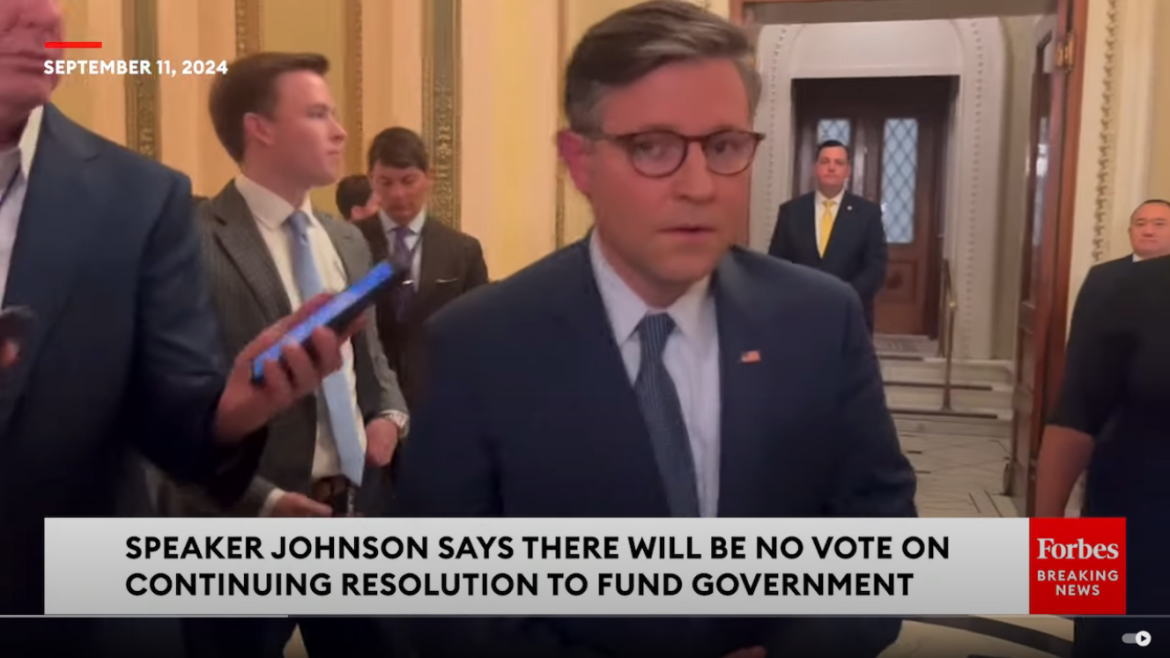House Speaker Mike Johnson has pulled a crucial government funding bill after support from within the Republican Party unraveled. The bill, originally scheduled for a vote today, was designed as a stop-gap measure to keep the government running into March. However, over a dozen GOP members withdrew their backing, primarily over concerns about provisions tied to new voter-ID laws.
The failure to advance the legislation now places the federal government on the brink of a shutdown, which would occur on October 1st if no new funding agreement is reached. Johnson’s plan had been the latest attempt to prevent that outcome, but the internal GOP divisions have proven to be a significant obstacle.
GOP Divides Over Voter-ID Provisions
At the heart of the conflict are the voter-ID laws that were embedded in the funding bill. Some moderate Republicans, as well as those from swing districts, expressed discomfort with the measure, arguing that tying a funding bill to contentious voting regulations would lead to a backlash from their constituents. Additionally, there were concerns that the voter-ID stipulations would further politicize an already sensitive issue and delay much-needed consensus on government funding.
Meanwhile, conservative hardliners within the party supported the inclusion of voter-ID requirements, seeing them as a necessary step to ensure election integrity. This faction criticized Johnson for pulling the bill, expressing frustration over the inability to secure party unity on the issue. A prominent member of the House Freedom Caucus commented, “We have to stand strong on election integrity, and it’s disappointing that we couldn’t move forward on this.”
Shutdown Looms As Negotiations Continue
With just days left before the government shutdown deadline, the withdrawal of the bill has placed increased pressure on lawmakers to reach a compromise. A shutdown would have wide-ranging effects, from halting federal services to furloughing hundreds of thousands of workers. Essential services, like Social Security and national defense, would continue, but many government operations would grind to a halt.
Speaker Johnson, addressing the situation after pulling the bill, acknowledged the growing urgency. “We need to come together and find a solution that both sides can agree on. A shutdown benefits no one,” he said. Johnson also indicated that he would work with party leaders to craft a new proposal, but time is running out.
Democrats Urge Clean Funding Bill
Democratic leaders, meanwhile, are calling for a clean funding bill, free from contentious policy provisions like voter-ID laws. House Minority Leader Hakeem Jeffries criticized the inclusion of such measures, labeling them as “partisan distractions” and urging Republicans to focus on keeping the government open. “We need a bill that funds the government, not one that caters to the extremes of either party,” Jeffries said during a press conference.
Democrats have expressed a willingness to negotiate on a stop-gap measure, provided it does not tie funding to voter-ID laws or other polarizing issues. They are pushing for a short-term bill that would fund the government into early 2024, giving both parties more time to debate longer-term budget proposals.
What’s Next?
With Johnson’s bill now off the table, both parties are scrambling to find an alternative solution. House Republicans are expected to meet behind closed doors to discuss their next steps, while Senate leaders are also working to prepare their own version of a funding bill.
For now, the clock is ticking, and the risk of a shutdown looms large. If no agreement is reached by October 1st, federal employees may find themselves furloughed, and essential government services could face significant disruption. All eyes are on Washington as the deadline draws near.



